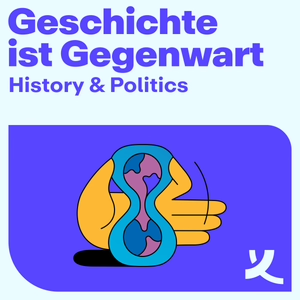
Dietrich Bonhoeffer
09/27/18 • 49 min
Previous Episode

Augustine's Confessions
Melvyn Bragg and guests discuss St Augustine of Hippo's account of his conversion to Christianity and his life up to that point. Written c397AD, it has many elements of autobiography with his scrutiny of his earlier life, his long relationship with a concubine, his theft of pears as a child, his work as an orator and his embrace of other philosophies and Manichaeism. Significantly for the development of Christianity, he explores the idea of original sin in the context of his own experience. The work is often seen as an argument for his Roman Catholicism, a less powerful force where he was living in North Africa where another form of Christianity was dominant, Donatism. While Augustine retells many episodes from his own life, the greater strength of his Confessions has come to be seen as his examination of his own emotional development, and the growth of his soul.
With
Kate Cooper Professor of History at the University of London and Head of History at Royal Holloway
Morwenna Ludlow Professor of Christian History and Theology at the University of Exeter
and
Martin Palmer Visiting Professor in Religion, History and Nature at the University of Winchester
Producer: Simon Tillotson.
Next Episode

Hope
Melvyn Bragg and guests discuss the philosophy of hope. To the ancient Greeks, hope was closer to self-deception, one of the evils left in Pandora's box or jar, in Hesiod's story. In Christian tradition, hope became one of the theological virtues, the desire for divine union and the expectation of receiving it, an action of the will rather than the intellect. To Kant, 'what may I hope' was one of the three basic questions which human reason asks, while Nietzsche echoed Hesiod, arguing that leaving hope in the box was a deception by the gods, reflecting human inability to face the demands of existence. Yet even those critical of hope, like Camus, conceded that life was nearly impossible without it.
With
Beatrice Han-Pile Professor of Philosophy at the University of Essex
Robert Stern Professor of Philosophy at the University of Sheffield
And
Judith Wolfe Professor of Philosophical Theology at the University of St Andrews
Producer: Simon Tillotson
If you like this episode you’ll love
Episode Comments
Generate a badge
Get a badge for your website that links back to this episode
<a href="https://goodpods.com/podcasts/in-our-time-religion-36454/dietrich-bonhoeffer-1390849"> <img src="https://storage.googleapis.com/goodpods-images-bucket/badges/generic-badge-1.svg" alt="listen to dietrich bonhoeffer on goodpods" style="width: 225px" /> </a>
Copy




